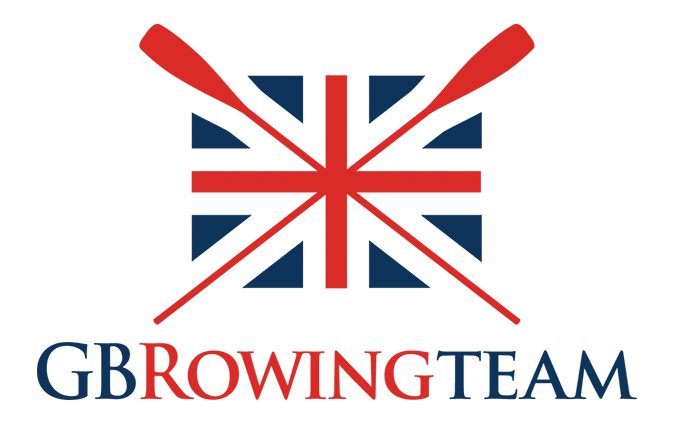Sustainability
Our vision
A clean and flourishing environment in and around our waters – for now and for future generations.
Our aim
To empower the rowing community across Britain to work together to learn, share and develop robust, sustainable practices to protect the sport we love and our planet.
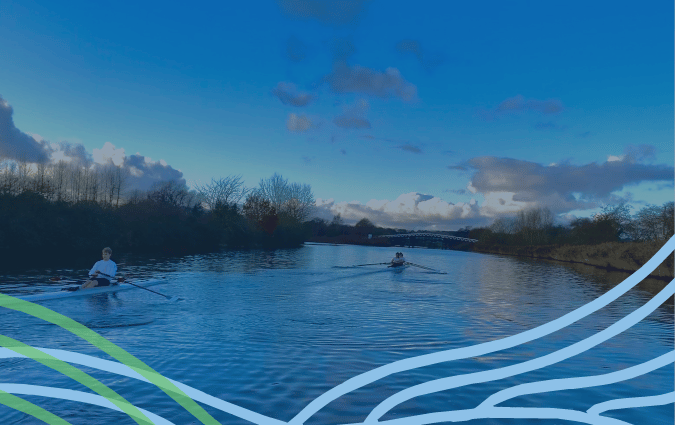
Our 6 objectives
Help Our Waters Thrive
British Rowing will work in collaboration to restore access to clean water.
Reduce Our Carbon Footprint
We will audit and measure our CO2e footprint – and make plans to reduce it.
Embed Sustainable Practice into our Operations
British Rowing will implement ways of working with sustainability at their core.
Be Agile
British Rowing will think forwards and laterally to mitigate and protect our sport against climate change.
Learn, Educate and Facilitate
British Rowing will learn as a sport and in turn help our members learn.
Inspire and Celebrate
We will motivate British Rowing staff and members to ‘do the right thing’, and to celebrate their success.
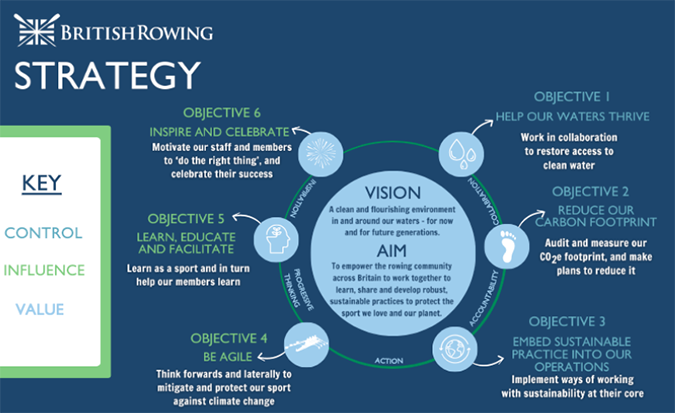
Case studies and resources for clubs
Water quality
Local environment and plastics
Club energy usage - on and off the water
Reducing and decarbonising your energy use is good for air quality and it can help your energy bills too.
Making light work of your club’s energy bills
Renewable energy at rowing clubs: Case studies
Solar panels bring light to off-grid boathouse
Flooding
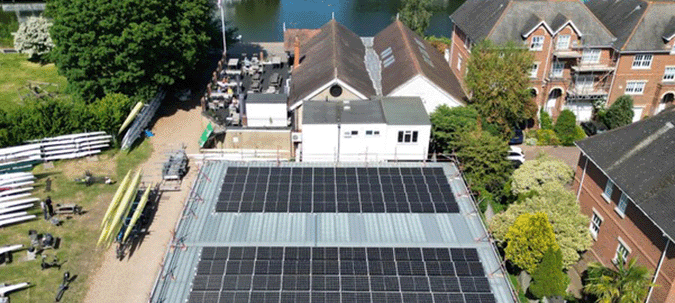
Guidance on rowing when water quality is poor
- Mitigations to take when water quality is poor.
- What to do if you become sick.
- How various club roles should respond to poor water quality.
Report cases of sickness following rowing on poor quality water using our Incident Reporting System:
How to report pollution in Environment Agency waters
If you spot any signs of pollution in Environment Agency (EA) waters, report this to the EA and relevant water company as soon as possible:
- Environment Agency pollution hotline – 0800 80 70 60.
- Thames Water pollution hotline – 0800 316 9800 or report online via their Pollution Tracker.
When reporting, ask for the National Incident Recording System (NIRS number), to make it easier for the pollution events to be identified and communicated between the EA and Thames Water. Take picture/videos too.
Storm overflow maps
These Event Duration Monitoring (EDM) maps show in near real time when the local water company is discharging combined sewer overflows into a watercourse.
EDM Map for England EDM Map for WalesVisit Water UK’s National Storm Overflow Hub for more information.
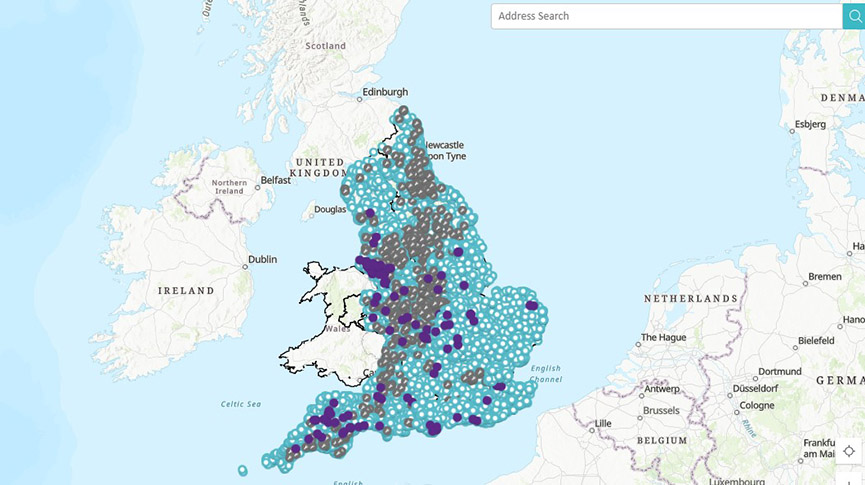
Invasive species guidance
Download this handy leaflet containing photos to help you identify the main non-native, invasive species found on our waterways as well as quick notes on how you can help.
Invasive species include both plants, such as floating pennywort (seen in the photo), and animals, such as killer shrimp and quagga mussels.
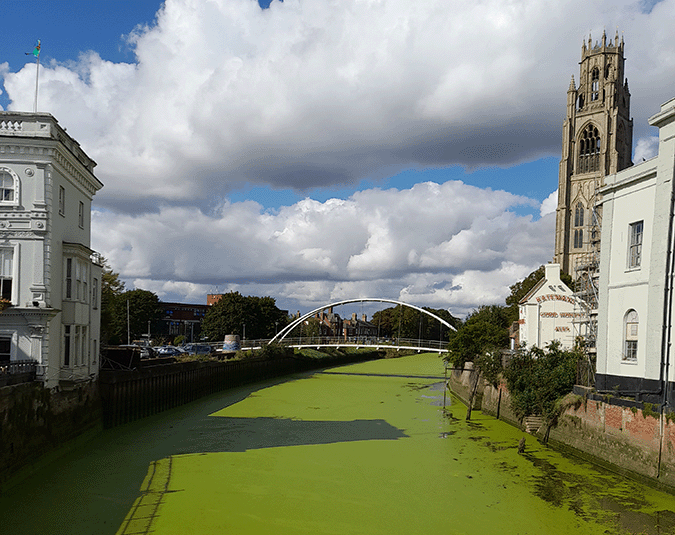
5 things clubs can do now
- Reduce mains water usage by using buckets of water (without detergents) rather than hose pipes for cleaning boats, and encouragig members to take shorter showers (many water companies provide free shower timers to help you do this – search for ‘free shower timer’).
- E-mail your local MP asking them about their policy on clean water. This takes just 2 minutes and you can get a pre-written letter here.
- Equip your launch fuel store with a spill kit to manage any fuel spills.
- Stop and pick up litter in the water during training, when practical, or on land around your boathouse.
- Create ‘bee cafe’ if you have a spare corner of land where you can grow pollinator-friendly plants.
Want to do more?
For more environmental sustainability ideas for your club, check out Section 4.6 (page 82) in our Club Management Guide and download our example Job Description and guide for a Club Sustainability Officer.
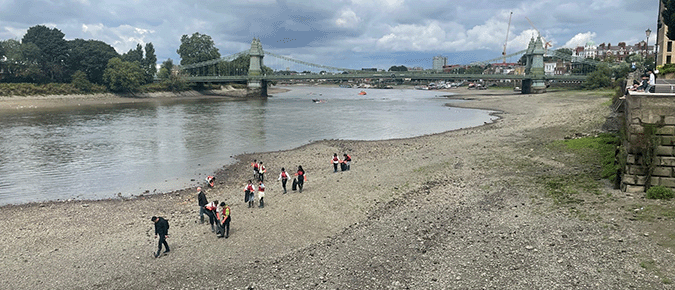
5 things competitions can do now
- Actively encourage trailer sharing and car-pooling/use of public transport by providing information about trains/buses. Would train travel be feasible if there were a shuttle from the station?
- Provide places where people can refill their water bottles – and information about where these are!
- Encourage competitors and spectators to bring reusable water bottles and a re-usable cup for teas and coffees.
- Sustainable sourcing: ask suppliers where medals, volunteer clothing and any merchandise you might be selling comes from and how these are produced. Consider the onward journey: can the item be re-used or recycled, or will it end up in landfill?
- Promote Check, Clean, Dry messaging to stop the spread of invasive species. British Rowing has aluminium signs, A3 posters and z-cards: please contact [email protected] if you’d like some for your competition.
Want to do more?
Download our example Job Description and guide for a Competition Organising Committee Sustainability Adviser.

Thriving Waters Scheme
The Thriving Waters Scheme is designed to help affiliated clubs and organisations keep their local stretch of water thriving and accessible for the long term.
Clubs are invited to submit projects that will help their local stretch of water thrive, through water testing, litter clean-ups or action on invasive species.
Applications for 2025 close 30 November
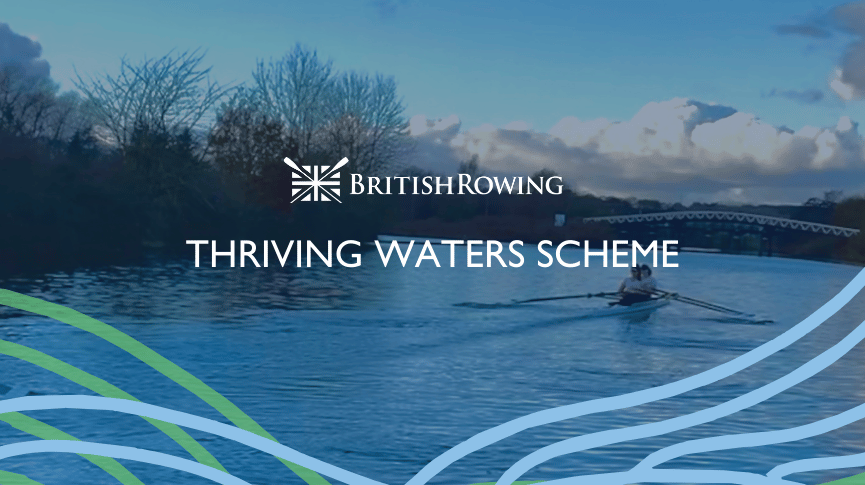
Partners
River Action
 River Action is a UK-based environmental charity committed to addressing the severe problem of river pollution, particularly that caused by agricultural and food industry practices, and sewage discharge by water companies.
River Action is a UK-based environmental charity committed to addressing the severe problem of river pollution, particularly that caused by agricultural and food industry practices, and sewage discharge by water companies.
We find creative and innovative ways of unlocking action and delivering impact on the ground.
The Rivers Trust
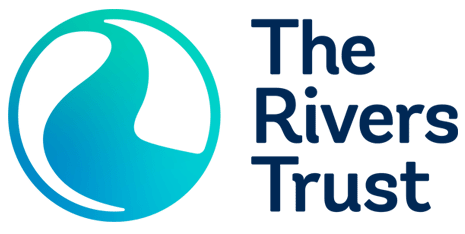
The Rivers Trust is an umbrella organisation for 65 member Rivers Trusts across Britain, Northern Ireland and Ireland.
Rivers shape our landscapes and provide the foundations of our cities, towns and countryside. When they thrive, so do we.
Delphis Eco
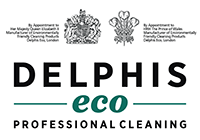 Winner of the Queens Award for Enterprise in Sustainable Development in 2022, Delphis Eco is the leading manufacturer of professional cleaning products created in Britain.
Winner of the Queens Award for Enterprise in Sustainable Development in 2022, Delphis Eco is the leading manufacturer of professional cleaning products created in Britain.
Its award-winning, ecological cleaning range is made from renewable, plant-based ingredients and the entire range is packaged in the UK’s first 100% post-consumer recycled plastic bottles, reducing carbon by 61% compared to using virgin plastic.
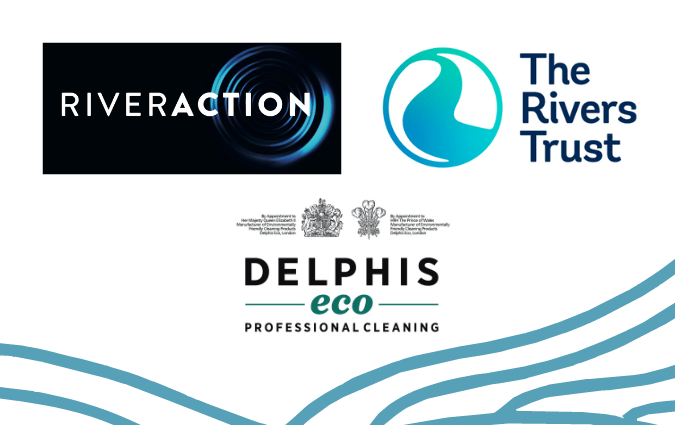
Clean Water Sports Alliance
British Rowing and six other national governing bodies of water-based sports have has united over the issue of water pollution, setting the vision to achieve healthy and nature rich blue spaces across the UK for everyone to enjoy water sports.
Find out moreThe Clean Water Sports Alliance will work together to influence decision makers and drive positive change, working collaboratively to highlight issues and create solutions to help return the UK’s blue spaces to be where nature can thrive and sport and recreation can be enjoyed.
The Alliance's 3 priorities
The Alliance has set out three priorities that will inform its actions:
- Further and faster action on pollution. Improving the health of UK waters by 2030
- Enable people to make real-time informed choices about where and when to participate in water-based sports and activities
- Recognition of all recreational water users across decision making and policy.
3 asks of regulators and decision makers
Aligned to its own priorities, the Alliance is making three asks of regulators and decision makers:
- Regulators to be adequately funded to monitor, investigate and hold polluters to account, harnessing nature-based solutions
- Enable accurate access to real-time water quality information all year round including the compulsory monitoring of all sewage outlets; recognition of open source science relating to water quality and the creation of a centralised information hub for all water sports users
- Advocate a change from ‘bathing waters’ to ‘recreation waters’ within government policy to recognise the wide range of activities that depend on clean water.
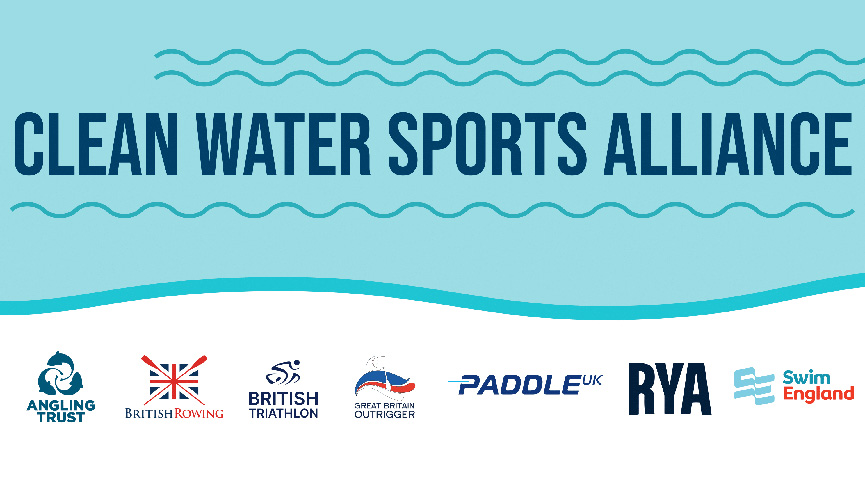
Support from the GB Rowing Team
GB Rowing Team athletes tested water quality at the National Training Centre in Caversham, near Reading as part of the launch for our Environmental Sustainability Strategy.
